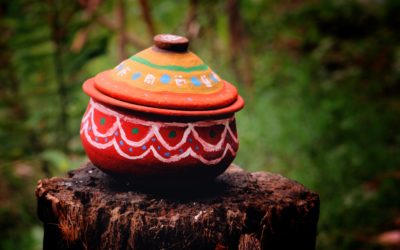What is an autopsy?
Autopsies are medical procedures where a doctor cuts into the body, similar to the way they would operate on a living person during routine surgery. He or she is there to examine tissue, examine vital organs, look for causes of injury, take samples, and more, depending on the suspected cause of death. While it is not always the case, the point of an autopsy is to do that very thing; determine a cause of death to report on a death certificate, or even for legal reasons.
While it may sound morbid or frightening, doctors who do these procedures often perform them daily, and work with the utmost respect to the departed. Even in the process of examining organs and other body parts, medical experts take great care with the body. The average autopsy takes under 2 hours.
But why is this needed?
Autopsies aren’t always done but could be required depending on the circumstances of death. If a person dies as a victim of a crime, by an overdose of drugs, or for reasons that are unknown, some states require that the body is put through an autopsy. While this might be uncomfortable for loved ones, it can work in the opposite direction too. That is, if a young person were to die in their sleep for example, the family would need to get answers from the autopsy report as to what happened to him or her. That is, autopsy reports can offer closure to families in grief.
While laws vary from one state to the next, autopsies are almost always required if the cause of death is suspicious, if a person died in state or federal care, if it’s an unknown cause of death in a child or infant, or if the death is in any way associated with police or other law enforcement.
Death certificates needed for legal purposes like beneficiaries, closing of accounts, and handling of estates require a cause of death. An autopsy can often be a big help in obtaining that as final findings in autopsy reports are what dictate that final cause of death for these important documents.
Where are autopsies done?
While there are some exceptions, autopsies are generally done wherever the person who died regularly received care. Hospitals and other medical facilities are the most common for this.
Is it permissible to do any autopsy in Islam?
The short answer is: There is a difference of opinion on the issue.
Traditionally, scholars have said it is impermissible, unless it is mandated by law, while some contemporary scholars say it is permissible based on need.
The difference of opinion comes from an interpretation of the Quran, Sunnah, Usul ul Fiqh, Principles of Jurisprudence, and Fiqh, Islamic Jurisprudence.
Evidences Used to Support Autopsies as Unlawful Unless Required:
- Qur’an: Allah says in Surah al-Isra, verse 70: “We have honored the children of Adam.”
- Hadith: ‘A’isha reported God’s messenger as saying, “Breaking a dead man’s bone is like breaking it when he is alive.” This Hadith was transmitted by Malik, Abu Dawud and Ibn Majah.
- Usul Principle: “A human being is honored according to Shariah even if one is a non-believer (kafir), and the meaning is that one’s body and organs are sacred. Hence, it will not be permissible to even break the bone of a dead non-believer’s body.”
Reasoning for The Group That Says It Is Impermissible, Unless Mandated By Law:
The human body, whether it is Muslim or non-Muslim, dead or alive, is honored and sacred. Harming, cutting, altering, or dishonoring the body in any way violates the sanctity given to the body. The scholars state that the harms caused to the body outweigh the benefits of what might be gained from doing an autopsy.
In addition, secondary conditions such as uncovering the aw’rah, or the intimate parts of the body, is not allowed without a valid reason. Delaying the burial or the ghusl, washing of the body, without cause is also not recommended. Autopsies usually result in all of these secondary conditions occurring.
The scholars who say it is impermissible to perform autopsies, do make an exception when there is a need such as a criminal investigation or when it is mandated by law. However, even in these cases, the scholars say, Muslims should do their best to object or avoid autopsies.
Evidences Used to Support Autopsies as Permissible Due to a Need:
- Fatwa 1: “If a pregnant woman dies with her baby alive in her stomach, it will be necessary to cut open her body and remove the baby. However, if the baby was also dead, it will not be permitted to cut open her body.”
- Fatwa 2: “A person who unjustifiably and unlawfully swallowed a precious item, like a gemstone, of another person and then died. In such a case, if the one whose precious item he swallowed was to demand compensation, then if the deceased person left some money behind, it will be paid from his leftover wealth. However, if he left nothing behind, his body will be cut open and the precious stone or item will be removed from him and returned to its owner.”
- Usul Principle: Choosing the lesser of two evils.
Reasoning for The Group That Says It Is Permissible, Due to a Need:
Using the principle of choosing the lesser of two evils and the 2 fatawa, legal Islamic rulings, mentioned above, the scholars say that performing autopsies for even medical research or scientific purposes are allowed. They posit that by doing autopsies for medical or scientific purposes, better insight to diseases can be achieved, which in turn can lead to saving more lives in the future. Therefore, while they do concede that there is an aspect of the body being dishonored in play, the benefit of saving lives outweighs the harms.
Autopsies for medical research are considered to be permissible by most scholars of the Arab world. However, they do layout the following guidelines:
- The deceased must give consent before death OR the heirs must approve of the autopsy.
- Only what is required should be opened.
- Autopsies of the female body should only be conducted by female doctors.
- The deceased should be buried after the autopsy.
Can I refuse?
If you have just lost a loved one and don’t want them to undergo an autopsy, the only thing you can really do is talk to the doctor or medical professional who took care of your loved one. Unfortunately, authorities can order autopsies without your permission when your loved one’s death falls into any of the situations or categories above. Authorities will have a legal right to autopsy report findings too. You will, however, be asked for consent out of courtesy before any authorities step in — but be warned that, in some cases, you won’t have many legal options.
What happens with autopsy results?
Autopsy results normally go first to the doctor who treated the patient. That doctor then meets with the family and specifically next of kin (the closest blood relative or legally assigned next of kin), and notifies the family or legal spouse of the cause of death. The doctor will tell the next of kin whether or not the death was suspicious, and all that the autopsy revealed about how their loved one died. Following this conversation, the doctor will relay his or her findings on to the appropriate authorities, and a copy of the death certificate with the cause of death will be given to the funeral director as well as the appropriate state agency in your state.
While families don’t have much say in whether an autopsy is done in certain situations, next of kin family members and legal spouses always have rights to view the full autopsy report following the doctor’s final findings. These reports, however, are not public. The only way for the public to receive a full copy of the autopsy report is through a court order or directly through the deceased’s next of kin.
What happens next in terms of the deceased?
After the autopsy is completed, your regular funeral plans will carry on as they would have had no autopsy ever been performed. That is, your loved one will be brought from the morgue to the funeral home you have selected for their final care. They will be attended to, respected, dressed and cared for as you wish for any planned services in conjunction with the funeral home you have made arrangements with.
References
- Quran.com, Abdul Haleem Translation
- Mishkat al-Masabih, Hadith 1714
- Radd ul Muhtar Vol. 5, P. 58, HM Saeed
- Legal Ruling
- “Are Postmortems Allowed in Islam?” by Mufti Muhammad ibn Adam
- al-Fatawa al-Hindiyya and Fath al-Qadir
- “Are Postmortems Allowed in Islam?” by Mufti Muhammad ibn Adam
- Fath al-Qadir and al-Fatawa al-Hindiyya
- Bada’i al-Sana’i, 5/129
- Islamic Fiqhi Academy of Makkah Mukarramah in October of 1987
- “Is organ donation and autopsy permissible in Islam” by Ml. Asif Umar, approved by Mufti Ebrahim Desai
- Fiqhi Feslain, P. 183-184, Islamic Fiqhi Academy, India




